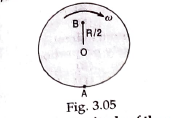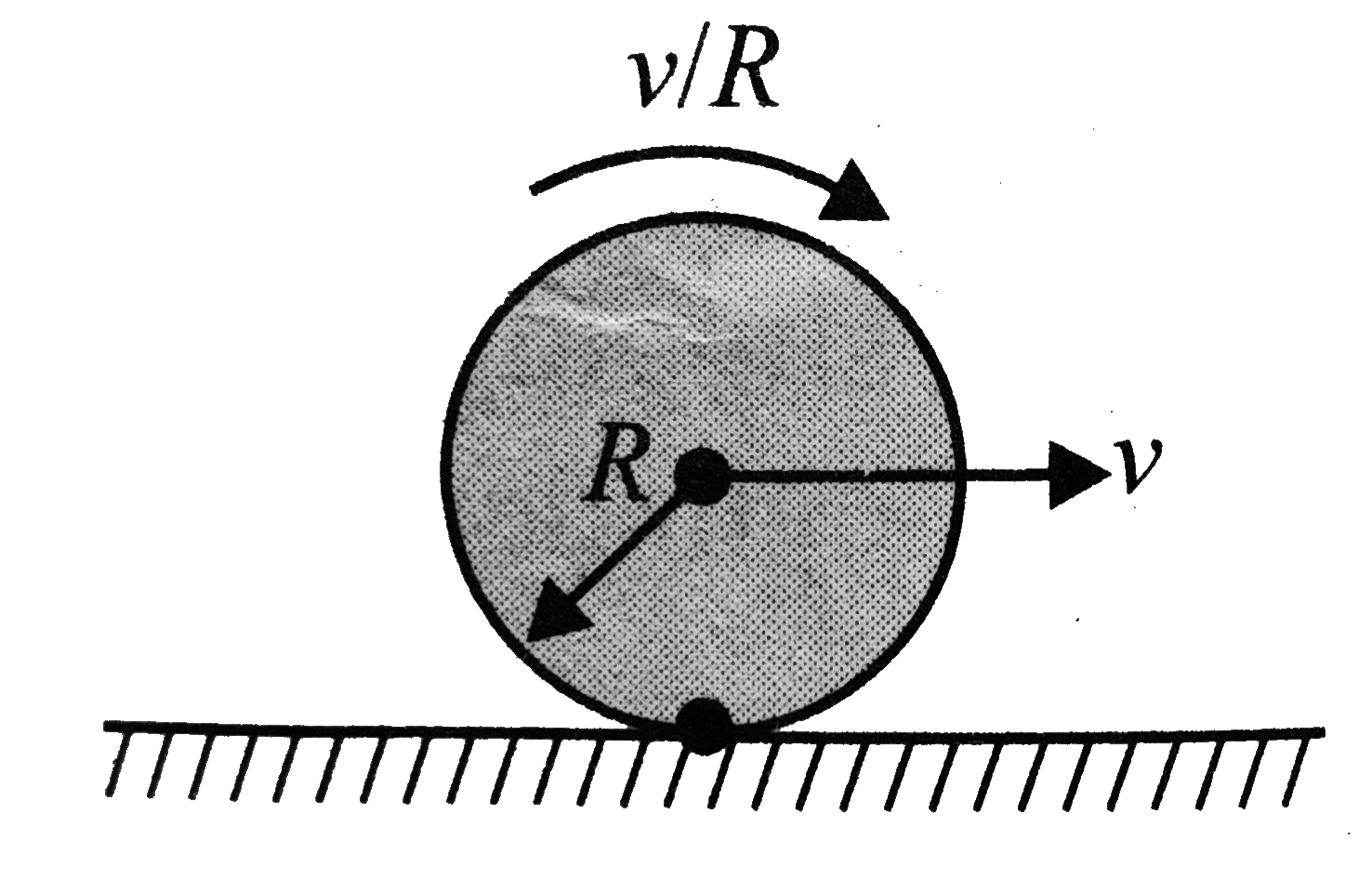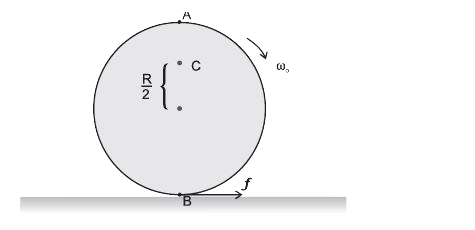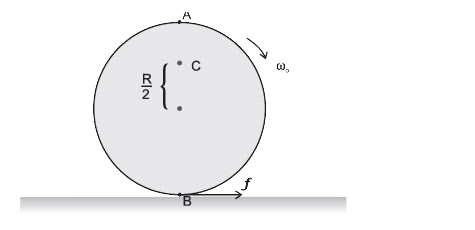A disc is rotating with angular velocity about its axis (without any translational push) on a smooth surface as shown in Fig. Why is friction necessary for rolling ?
 . Solution in Punjabi
. Solution in Punjabi
Step by step video & image solution for A disc is rotating with angular velocity omega about its axis (without any translational push) on a smooth surface as shown in Fig. Why is friction necessary for rolling ?. by Physics experts to help you in doubts & scoring excellent marks in Class 11 exams.
Updated on:21/07/2023Topper's Solved these Questions
Similar Questions
What is centre of mass of a system?
View SolutionA bend in a level road has radius of 100 m.Find the maximum speed with which a car turning this bend may have without skidding ,if the coefficient of friction between the tyres and road is 0.8.
View SolutionA disc is rotated about its axis with a certain angular velocity and lowered gently on a rough inclined plane as shown in Fig., then
View SolutionA disc is performing pure rolling on a smooth stationary surface with constant angular velocity as shown in Fig,. At any instant, for the lower most point of the disc,

View SolutionA disc rotating about its axis with angular speed omega_0 is placed lightly (without any translational push) on a perfectly frictionless table. The radius of the disc is R . What are on the disc shown . Will the disc roll in the direction indicated?
View SolutionA circular disc is rotating without friction about its natural axis with an angular velocity omega . Another circular disc of same material and thickness but half the raduis is gently placed over it coaxially. The angular velocity of composite disc will be
View SolutionA disc rotating about its axis with angular speed ωo is placed lightly (without any translational push) on a perfectly frictionless table. The radius of the disc is R. What are the linear velocities of the points A, B and C on the disc shown in Fig. 7.41? Will the disc roll in the direction indicated ?

View SolutionA disc rotating about its axis with angular speed ωo is placed lightly (without any translational push) on a perfectly frictionless table. The radius of the disc is R. What are the linear velocities of the points A, B and C on the disc shown in Fig. 7.41? Will the disc roll in the direction indicated ?

View SolutionA disc rotating about its axis with angular speed ω_(o) is placed lightly (without any translational push) on a perfectly frictionless table. The radius of the disc is R. What are the linear velocities of the points A, B and C on the disc shown in Fig. 7.41? Will the disc roll in the direction indicated ?
View SolutionA disc rotating about its axis with angular speed omega_(0) is placed lightly (without any translational pull) on a perfectly frictionless table. The radius of the disc is R . What are the linear velocities of the points A, B and C on the disc shown in Fig. Will the disc roll in the direction indicated ?
View SolutionA disc rotating about its axis with angular speed omega_(0) is placed lightly (without any translational pull) on a perfectly frictionless table. The radius of the disc is R . What are the linear velocities of the points A, B and C on the disc shown in Fig. Will the disc roll in the direction indicated ?
View SolutionA disc is performing pure rolling on a smooth stationary surface with constant angular velocity as shown in Fig,. At any instant, for the lower most point of the disc,

View SolutionA disc rotating about its axis with angular speed is placed lightly {without any transnational push) on a perfectly friction-less table. The radius of the disc is R. What are the linear velocities of the point A, B and C on the disc shown in the Fig. B 7:2.60 ? Will the disc roll in the direction indicated ?
View SolutionA disc is rotated about its axis with a certain angular velocity and lowered gently on a rough inclined plane as shown in Fig., then
View SolutionA disc rotating about its axis with angular speed omega_(0) is placed lightly (without any translational push) on a perfectly frictionless table. The radius of the disc is R. What are the linear velocities of the points A, B and C on the disc shown in fig. ? Will the disc roll in the direction indicated?
View SolutionA disc rotating about its axis with angular speed omega_0 is placed lightly (without any translational push) 011 a perfectly frictionless table. The radius of the disc is R. What are the linear velocities of the points A, B and C on the disc shown in Fig. 7.41? Will the disc roll in the direction indicated ?
View Solution
